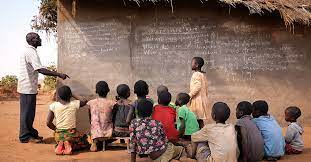A financial crisis that has brought numerous nations to the verge of default will force budget cuts of $220 billion on some of the world’s poorest nations over the next five years, according to a report released on Monday by Oxfam International.
The analysis by Oxfam, which drew on IMF outlooks and was released at the beginning of the IMF-World Bank meetings in Marrakech, also revealed that, under the existing terms, low- and lower-middle-income nations will have to pay back roughly half a billion dollars in interest and debt repayments every day through 2029.
As rising global interest rates, surging inflation, and a slew of economic shocks following the COVID-19 epidemic batter state finances, a record number of developing countries are in debt crises. As of March, nine different sovereigns had experienced 14 distinct default occurrences since 2020, according to rating agency Fitch.
Oxfam urged the IMF and the World Bank to focus less on debt restructuring and spending reductions and instead use the crisis to build a fairer system.
Amitabh Behar, interim executive director of Oxfam International, stated that “their answer to the debt crisis is more austerity, and their answer to the financing gap is more loans.” “True win-wins, like fairly taxing the rich, are being left on the table.”
A request for comment was not met with an immediate response from the IMF.
Earlier, Oxfam and other relief and advocacy organizations urged foreign creditors to forgive the debts of poor nations experiencing economic distress.
The research also stated that healthcare spending is below debt servicing payments for the poorest nations by a ratio of four to one.
During face-to-face negotiations in Marrakech, debt restructuring for some of the defaulted countries, like Zambia and Ghana, is anticipated to advance, and the IMF will carry on its discussions with Tunisia, Pakistan, Egypt, and other countries about the conditions of the proposed bailout funds.

















